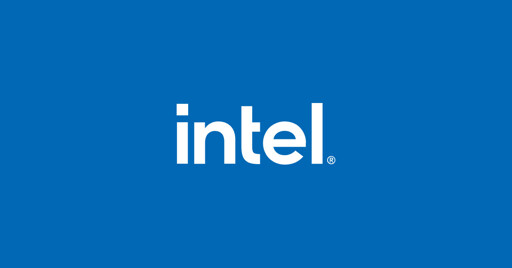Yeah this is a great writeup. First time I noticed it. I’d follow your blog on RSS for sure.
- 3 Posts
- 20 Comments

 28·1 month ago
28·1 month agoIt’s the new trend in software engineering: Turd-Driven Development

 31·2 months ago
31·2 months agoThis is the actual change if you’re curious: https://web.git.kernel.org/pub/scm/linux/kernel/git/torvalds/linux.git/commit/?id=80b6f094756f
And the paper: https://dl.acm.org/doi/abs/10.1145/3626780

 20·2 months ago
20·2 months agoI think the writer just couldn’t resist the pun. A bit myopic of them.

 103·2 months ago
103·2 months agoOpen sourcing old games is awesome for video game preservation.

 462·3 months ago
462·3 months agoMoving from C to C++ would also not solve any real problem. C++ of course adds OOP which I think can be nice (not everyone agrees with this!) but it also adds an insane amount of language complexity and instability. Mentally reasoning about C code is hard, reasoning about C++ code is nearly impossible.
Rust however brings a novel solution to classes of problems like ownership and mutability with the borrow checker. It’s now accepted to be a great tool for writing high performance code while preventing a substantial amount of common, but often subtle, bugs from slipping through. It’s not arbitrarily the first non-C code to be accepted in the kernel. And it’s used in other operating systems like Android and Windows already.

 7·3 months ago
7·3 months agoAs soon as I open the page I get a modal popup with this junk:
We and our up to 182 partners use cookies and tracking technologies. Some cookies and data processing are technically necessary, others help us to improve our offer and operate it economically.
The processing purposes are storing or accessing information on an end device; personalised advertising and content, measuring advertising performance and the performance of content, target group research and developing and improving offers; displaying external content (e.g. YouTube videos, podcasts, Twitter, quizzes), recommendations of own products and content, A/B testing, push notifications/communication, technically necessary cookies (security, login, forum).
By clicking the „Agree“ button, you consent to the processing of the data stored on your device or terminal equipment, such as personal identifiers or IP addresses, for these processing purposes in accordance with Section 25 (1) TDDDG (Telecommunications Digital Services Data Protection Act) and Art. 6 (1) (a) GDPR. In addition, you consent to providers in the USA also processing your data in accordance with Art. 49 (1) GDPR. In this case, it is possible that the transmitted data will be processed by local authorities.
You can consent to or reject individual data processing operations under Settings. You can edit or revoke your consent at any time via the „Cookies & Tracking“ link at the bottom of each page. Further details can be found in our privacy policy.
With our Pur subscription you can use heise.de without tracking, external banner and video advertising for €4.95 / month. Subscribers to our magazines or heise+ only pay €1.95 per month. You can find information on data processing in the Pur subscription in our privacy policy and in the FAQ.
With our pur subscription you use heise.de without tracking, external banner and video advertising. Alternatively, we and our up to 205 partners store and process cookies and other technologies on your device with your consent. We use these to optimise and continuously improve our website for you, as well as to display personalised advertising including profiling and editorial content.
And only Accept or Subcribe buttons.
No thanks.

 12·3 months ago
12·3 months ago“With our Pur subscription you can use heise.de without tracking, external banner and video advertising for €4.95 / month.”
Not letting me reject trackers without paying is some real garbage…

 2·3 months ago
2·3 months agoDuh, I missed that it was under Steam Input. Yeah, most likely that’s just controller polling. Amazing that somehow saves 6% battery.

 4·3 months ago
4·3 months agoOh, you refer only to this specific patch. I’m not 100% sure about this patch, but there are other kinds of polling rates, including a global kernel polling rate which greatly affects performance, and tweaking it might perhaps save battery life. And I just mean in general it appears Valve invests a lot of time into mobile power efficiency and I wonder if some makes it upstream.

 93·3 months ago
93·3 months agoIt has been my experience, which seems generally accepted online, that Linux is greatly outclassed by Windows when it comes to power efficiency on laptops during normal usage. So contributions of new ways in which power efficiency could be improved would be great.

 181·3 months ago
181·3 months agoI wonder how many of these updates make it from Steam Deck into mainstream Linux. Because my Deck lasts a lot longer on battery power than my Linux laptop does.

 262·3 months ago
262·3 months agoYou’re not wrong, though I’m not so sure about blaming “welfare teat-sucking”. EU right wingers in many countries have pushed hard for decades to slowly dismantle the welfare state, while also neglecting European security. The rich helped the rich get richer, and everyone else is paying the price. Clink clink.
It’s been continuously surprising to me how much hatred some C and C++ devs have for Rust. While Rust isn’t perfect, and plenty of criticisms aimed at the language are well-reasoned, the borrow checker is IMO the logical next step forward in “zero-cost abstraction” which is one of the strongest core philosophies behind C and C++.
The R4L effort seems to be structured sensibly, starting out with only allowing Rust code in (new) drivers. From what I can tell there’s comparatively little that has to be maintained upstream, but even that is encountering aggressive pushback.
I can’t help but feel like some devs have spent so much of their professional careers learning how to avoid the many footguns of C(++) that they fundamentally resent Rust for being a language which avoids most these problems, allowing fast code to be written with fewer bugs in less time and with less effort. This feeling is based on having written lots of C++ code for over 20 years, and having personally encountered devs who deeply resent Rust just because it’s not C.

 27·3 months ago
27·3 months agoTariffs are from what I’ve read, according to economists anyway, a lose-lose for both parties. They’re apparently useful only for obvious things like targeted protection of specific vulnerable domestic industries. I cant begin to understand what Trump is even trying to accomplish here. Blanket tariffs seem just self-destructive.

 5·3 months ago
5·3 months agoI love Supcom, but haven’t played it in a few years. Gotta try this!

 9·4 months ago
9·4 months agoOk, sounds cool. So I downloaded a .xdc file and… now what? I think they should’ve started with a paragraph on how to actually run one of these files.

 2·4 months ago
2·4 months agoinoreader seems very ergonomic, thanks!

 11·4 months ago
11·4 months agoI’ve been interested in trying out RSS again but I don’t want to self-host. Can anyone recommend a RSS client (hosted, local, or whatever) that they like?


I never really used Skype as a VOIP platform, but it was a great tool for many years for calling international phone numbers affordably. I’m sure it helped many people saving a lot of money calling their friends and relatives. For that I remember it somewhat fondly.